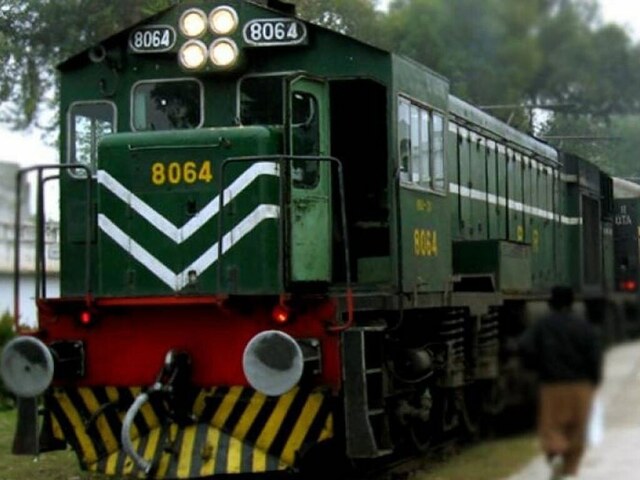By Tahir Amin
Copyright brecorder

ISLAMABAD: The Senate Standing Committee on Railways questioned the procedure and rationale behind adopting outsourcing and public-private partnerships models and directed the ministry to provide a thorough briefing on policies and practices in the next meeting.
The committee met here on Tuesday with Senator Jan Saifullah Khan in the chair. The meeting commenced half an hour behind schedule, as senior officials including the Federal Minister for Railways, Chairman Railways, and the Inspector General of Railway Police failed to attend the meeting. Their absence prevented discussion on the scheduled agenda items, which the committee decided to defer to the next meeting.
The committee expressed disappointment over the absence of the Minister for Railways, senior officials, and concerned departments despite assurances made in previous meetings to ensure compliance. Members noted that working papers were neither complete nor provided 72 hours in advance, as required.
Senator Rubina Khalid suggested that since senior railway officials had traveled from Lahore to Islamabad, the committee should use the opportunity to question them on matters outside the formal agenda.
Senator Shahadat Awan highlighted that details regarding FIR No 1/2018, involving alleged corruption of billion rupees, were missing from the working papers despite repeated directions from the committee. He termed it highly inappropriate that after 11 meetings, complete information was still not shared with the Senate’s panel.
Awan expressed strong reservations, accusing the ministry of repeatedly providing inaccurate records and concealing details of heavy financial losses faced by Pakistan Railways. He complained that questions raised on May 25, 2024, still remained unanswered and further disclosed that “over 100,000 cases are pending.”
Officials informed the committee that some railway officers had already been issued show-cause notices and penalized. Responding to concerns, the Secretary Railways clarified that information had been shared cautiously “to avoid negative reactions.”
He maintained that while Pakistan’s railway bridges and structures are old, they have withstood multiple floods and remain safe.
Rubina Khalid and Kamil Ali Agha endorsed these concerns, stressing that it was unjustified for members to travel from other cities when the Ministry failed to provide relevant data.
Agha sharply criticised the ministry’s failure to submit required reports and records. He questioned the rationale for outsourcing more trains when one had already been leased out to the private sector. He demanded clarity on how many trains had been outsourced and how many related cases were pending in courts.
The Chairman reminded that the Minister had earlier assured transparent provision of information and directed that in the next meeting, the Minister, Secretary, IG, and DIG Railways must be present to brief the Committee in detail. He further instructed that all future working papers be prepared in proper agenda-wise folders, flagged, and page-numbered to maintain order.
The Committee also discussed the flood situation and was informed that while old bridges had largely withstood the impact, some sectors, including Narowal–Sialkot, were temporarily affected but had since been restored.
Shahadat Awan raised the issue of restoring Budhal Express (Rohri–Jacobabad) and the Mandra–Chakwal railway line, stressing that people were forced to spend heavily on road travel due to suspension of these services. The Committee expressed dissatisfaction over the Ministry’s failure to make serious efforts for their restoration.
It was noted that Mandra–Chakwal section spans 75 km and hosts cement factories, making it a commercially viable route. The Committee directed that a detailed report on restoration be presented in the next meeting.
Rubina Khalid emphasized the need for improved public awareness of train services through television and social media campaigns. She also raised concerns regarding the closure of trains in Khyber Pakhtunkhwa (KP) and called for uniform development of railway infrastructure across all provinces. The Chairman announced that the next Committee meeting will be held in Peshawar to specifically review railway projects and facilities in KP.
Rubina Khalid also opposed outsourcing of trains, arguing that while contracting out catering or cleaning services may be understandable, handing over entire trains to private partnerships was akin to “renting out one’s own house or land.”
Rubina Khalid underscored the strategic importance of the Afghan transit trade and stressed that railway access must be extended to Torkham Pass to strengthen regional connectivity. The Committee called for a comprehensive briefing on railway gauges to evaluate which system would best connect Pakistan with neighboring countries.
The committee unanimously directed the Ministry of Railways to ensure complete, timely, and transparent compliance with its directions and to provide thorough reports on all agenda items in the next meeting.
Copyright Business Recorder, 2025



